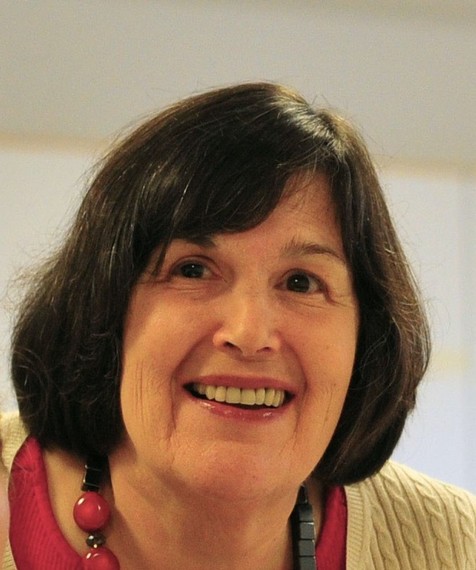The furor over the implementation and testing of the Common Core State Standards is detracting from dealing with the very basic issues involved in putting these standards to work. The CCSS standards set the bar for the kind of behavior we expect educated students to do from grades K to 12, but they do not provide even a hint about the curriculum needed to put these standards into operation. What is mandated is an increased amount of evermore sophisticated reading, writing, speaking, and listening.
I spend a lot of time discussing these issues with my friend, Dr. Myra Zarnowski, Professor of Children's Literature at Queens College School of Education, part of the City University of NY. She is a voice of clarity and sanity when it comes to the CCSS. So I thought I'd interview her for this blog:
VC: How strictly do teachers have to worry about adhering to the CCSS?
MZ: I don't think teachers, parents, or kids are helped at all by worrying. In fact, we all need to slow down and think about what the standards are asking us to do. That means actually reading them. When we do that, we find that much of what is being asked is not dramatically new. After all, what teacher has not asked her students to think about the main idea and key details related to what they are reading? What teachers and students are not considering how writing is organized or structured? Or what makes one word choice more effective than another? What teachers are not engaging in discussions related to what is being taught and learned? This is what we teachers do. So, there are familiar, recognizable parts to the CCSS.
What's new is the rigorous pursuit of these standards across the curriculum in a way that builds competence across the grades. Skills introduced in kindergarten are reinforced and enhanced in first grade. It's a spiral that keeps on getting more complex. So, Vicki, perhaps your question is, Should teachers adhere to these standards? In my opinion, the answer is yes. But I want to hastily qualify that answer by saying that these skills need to be embedded in content -- the social studies, science, math, and language and literature study that is appropriate for each grade. And that content comes from quality literature, art, video, photographs, primary sources, and so on. Teachers also need to respond to the children they are teaching -- to their interests, strengths, and needs for instruction.
VC: What are some of the problems teachers articulate about using children's nonfiction in the classroom?
MZ: The biggest problem teachers and principals tell me about is locating the appropriate literature to support curriculum in the content areas. It's a big job keeping up with children's literature, and teachers are often looking for suggestions for books that can be used together to support learning in science and social studies. They are looking for books that support learning of mandated curriculum.
An equally big problem is access to these books. Even when the "right" books are identified, getting what is needed is costly. Since CCSS is emphasizing using more than one text on a topic, access to these books is still a problem. It's not enough to have single copies of books that the teacher reads aloud to everyone -- although reading aloud is good! Students also need to spend time reading independently.
A related problem is that teachers are also looking for assistance in pulling together nonfiction literature and related materials, CCSS, and content standards. We are all working towards a coherent approach to teaching and learning. This would be a content-centered, inquiry approach that teachers and children find interesting and challenging.
VC: What could you say to calm some of the troubled waters that have surfaced in the wake of the CCSS?
MZ: I suggest plunging in and learning from experience. This past school year, my friend and colleague Mary Ann Cappiello and I wrote a column for School Library Journal's e-newsletter Curriculum Connections. Each month we wrote an actual teaching unit for a different grade level (primary, intermediate, and high school) and different content area (science, math, or social studies). We introduced nonfiction materials to use, CCSS standards our activities would cover, content standards covered, and the actual activities that students and teachers could do. We learned a tremendous amount. Mostly, we learned that there is no quick fix, no single easy solution, but the results lead to tremendous growth for both us and our students.
In short, we all need to work together and support each other as we develop and implement standards. It's a big job, but a satisfying one. Our primary concern should always be on student learning -- how to promote both interest and enthusiasm for content and the skills needed to deal with it.

